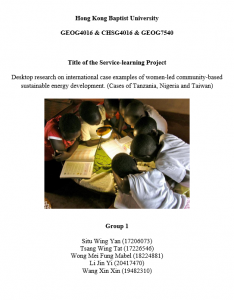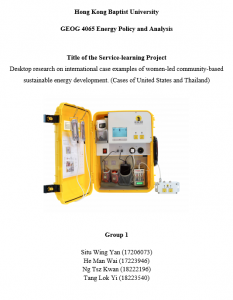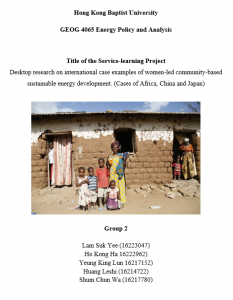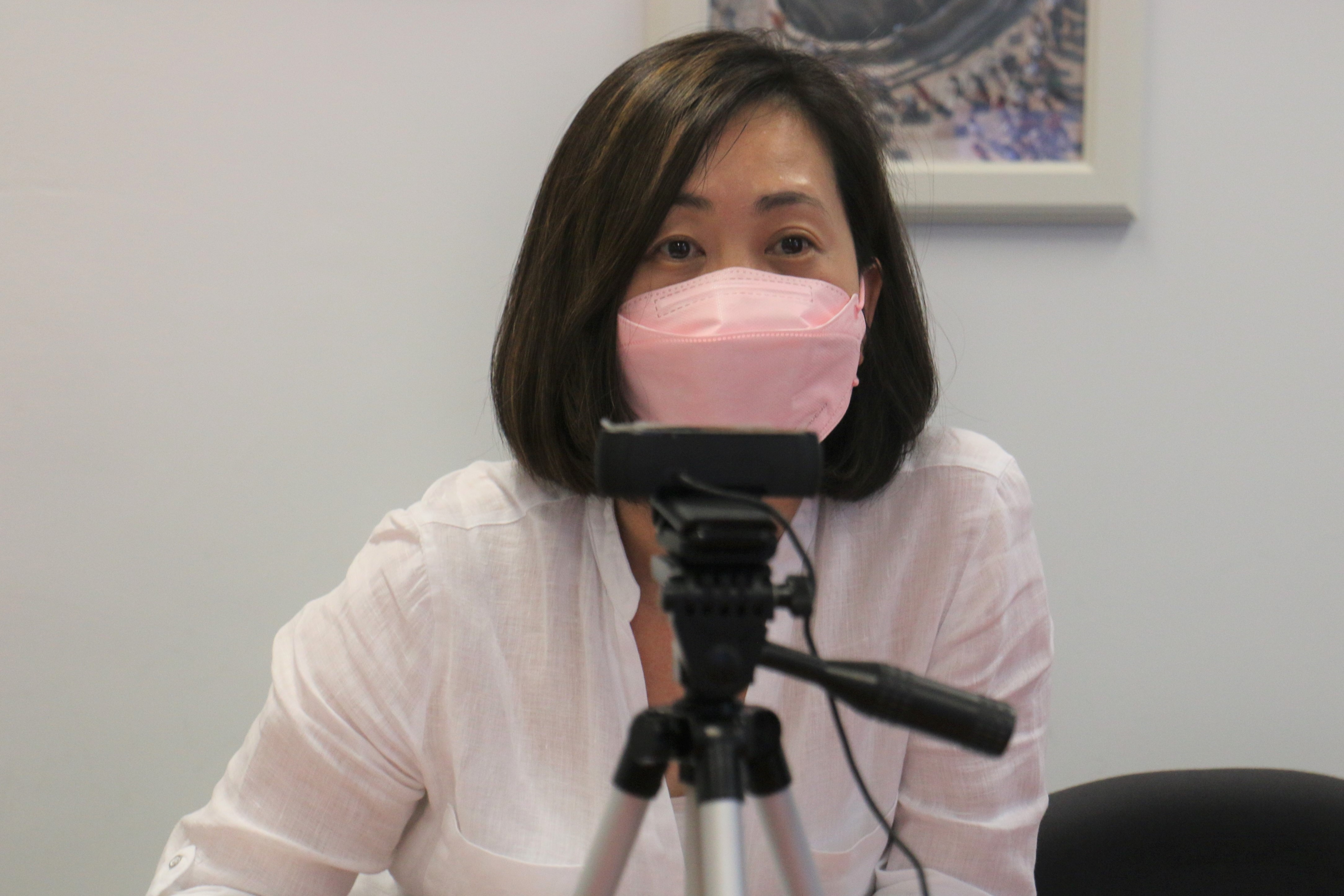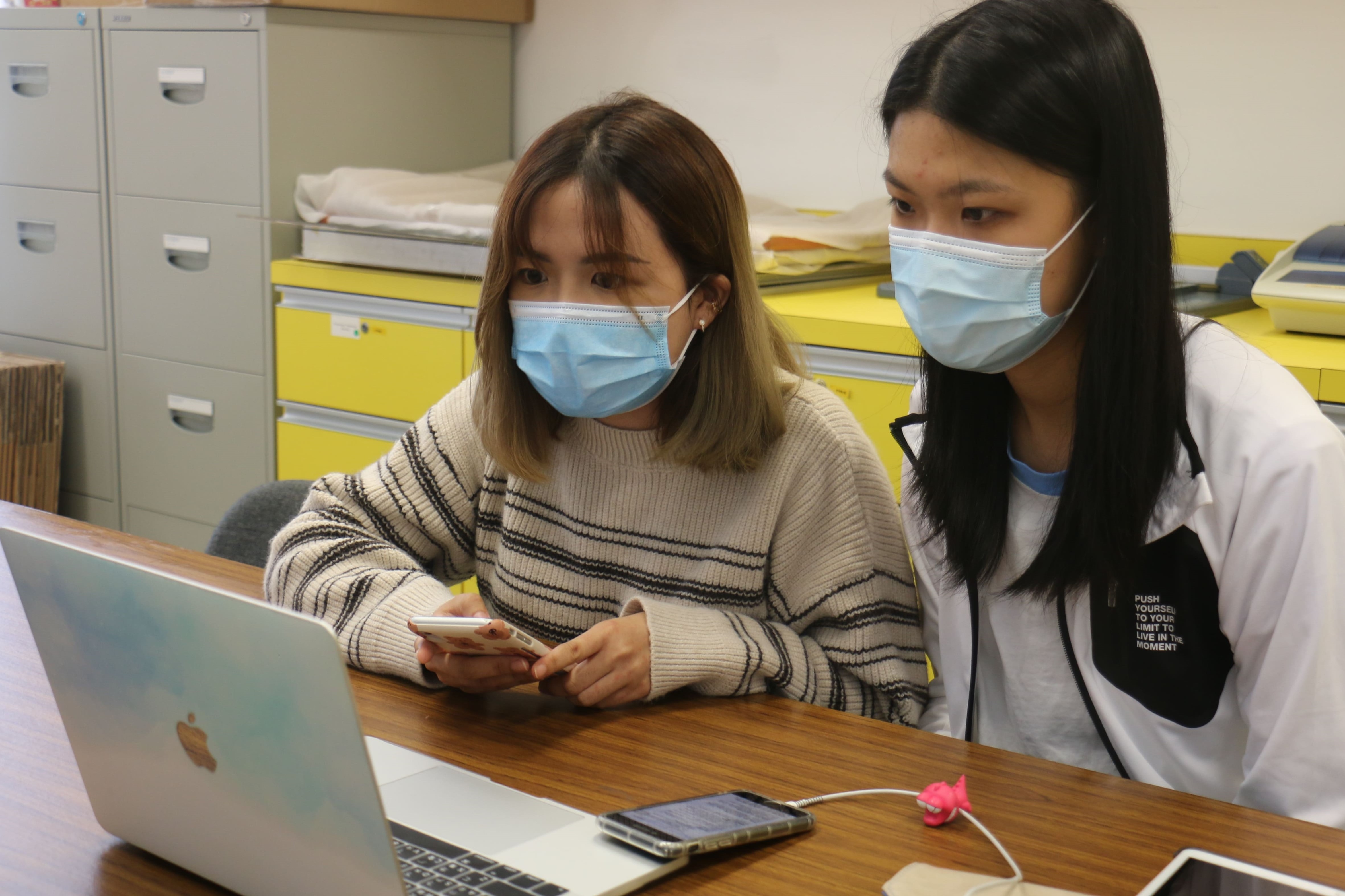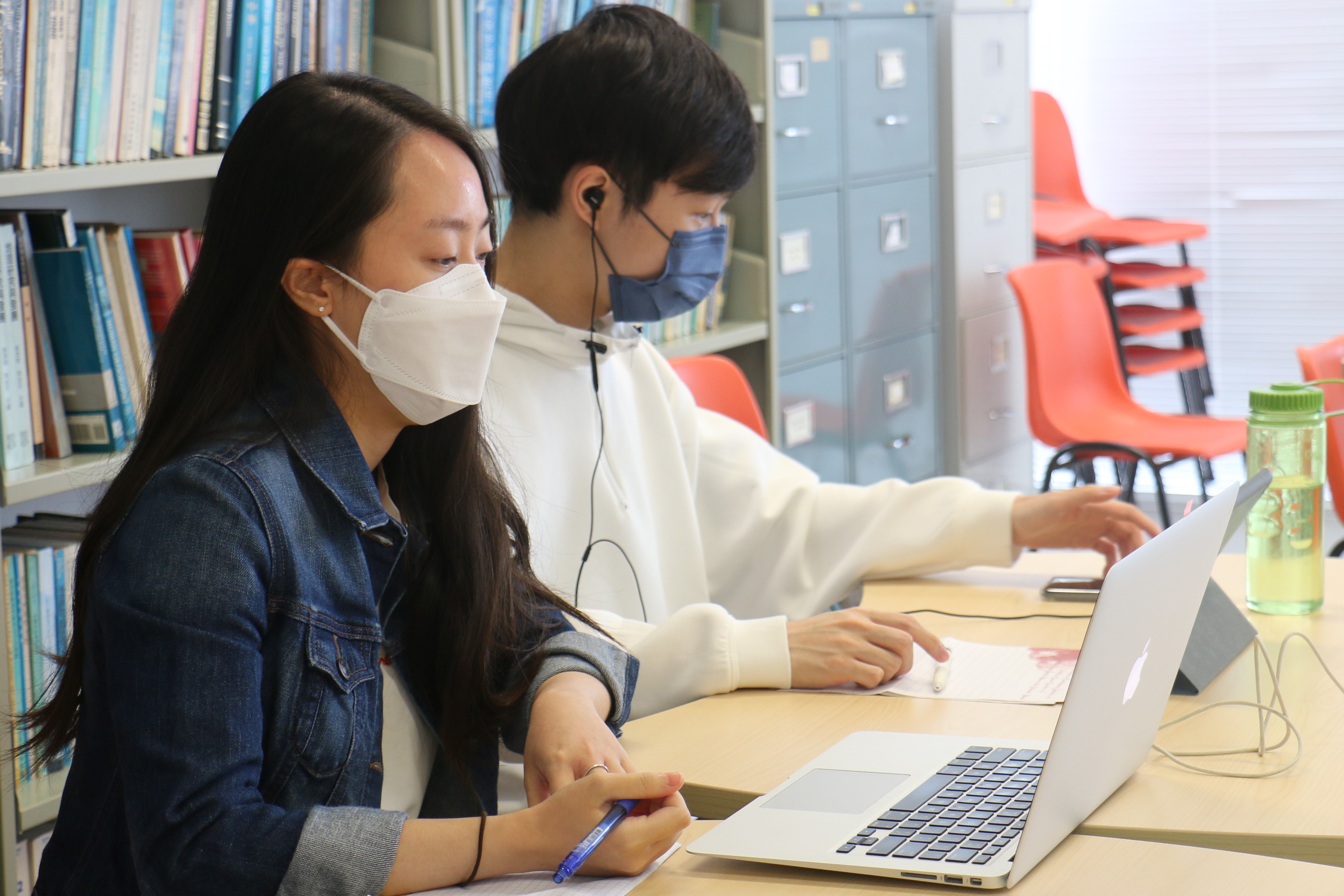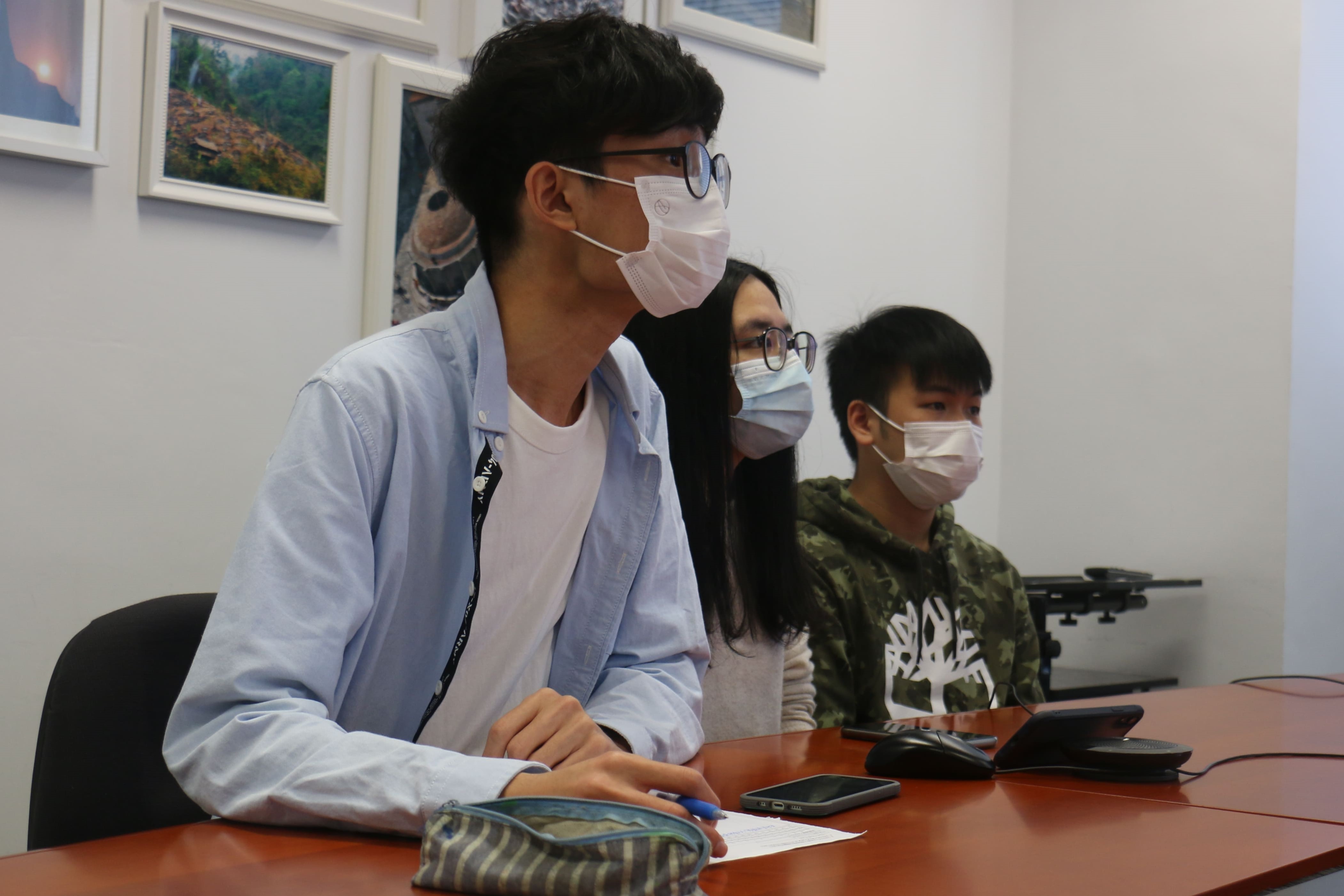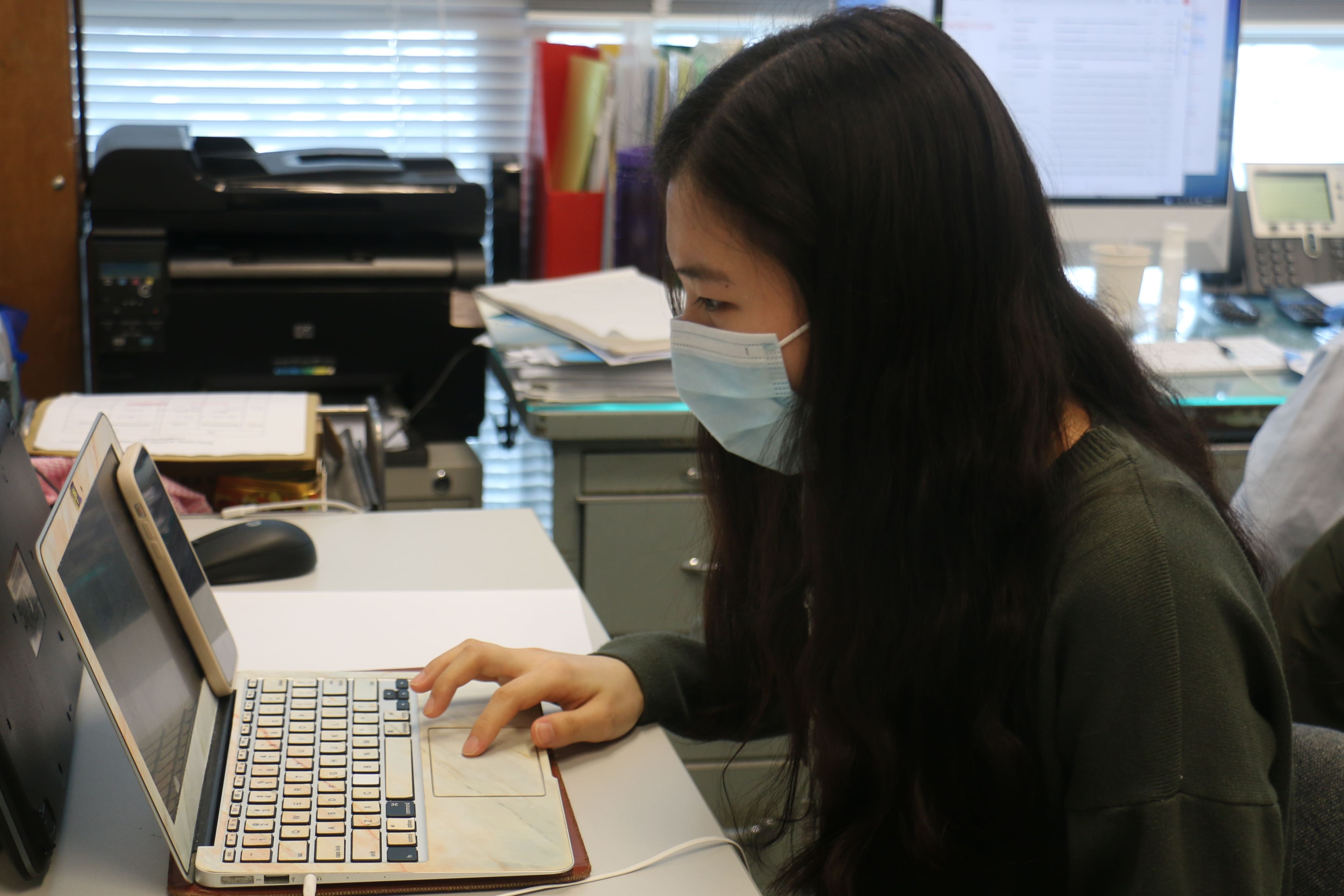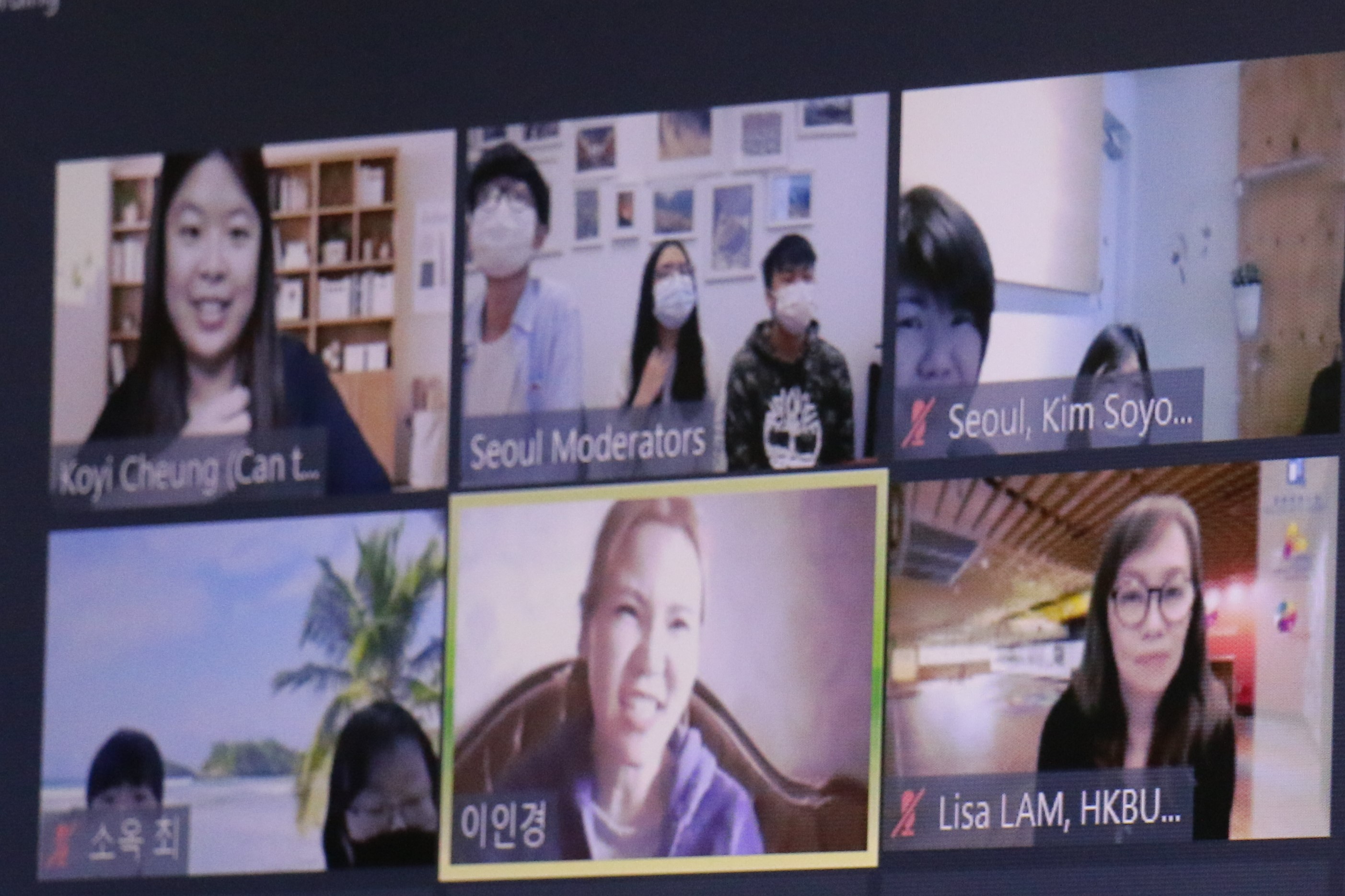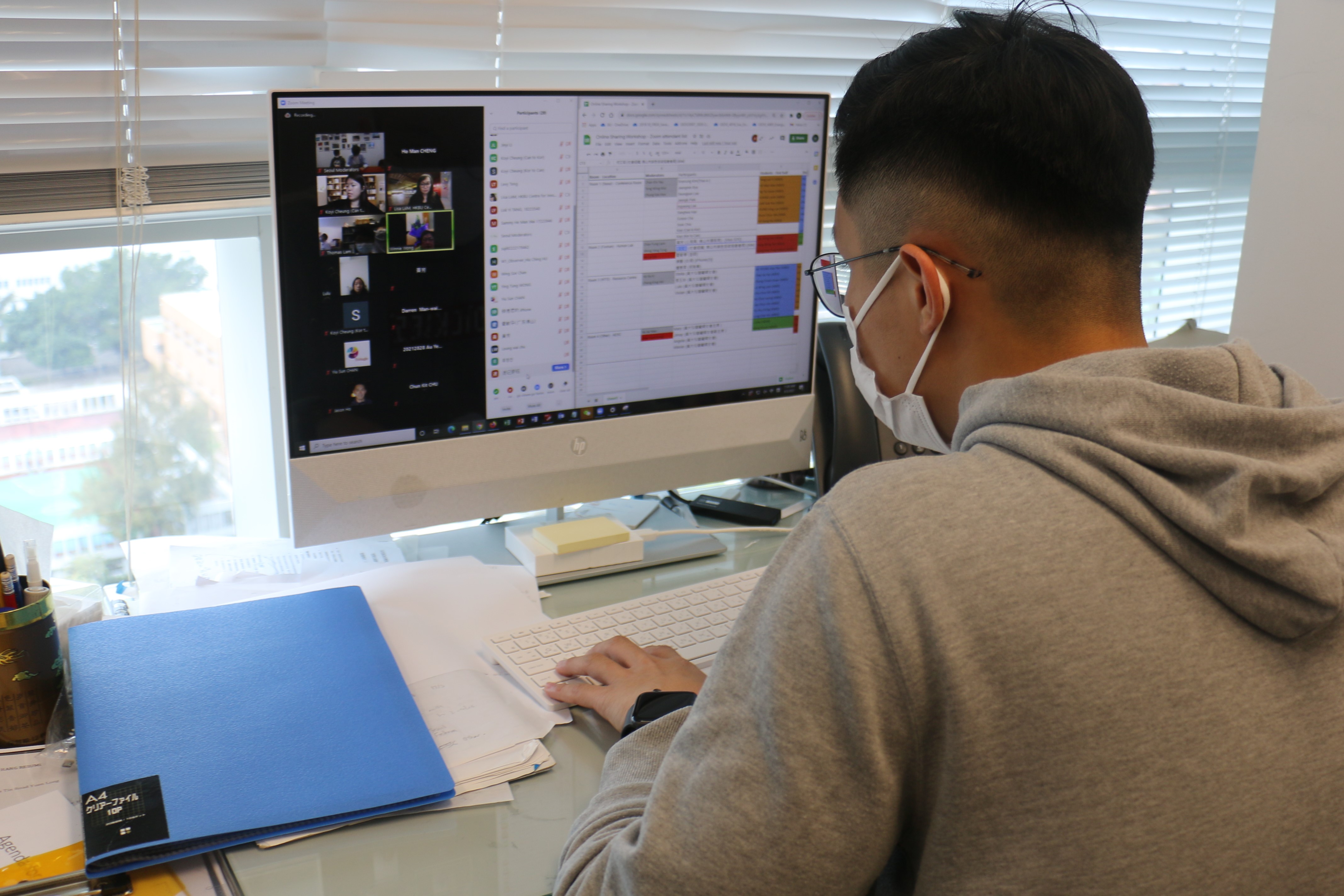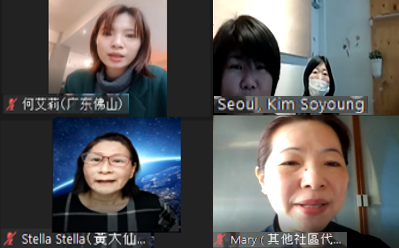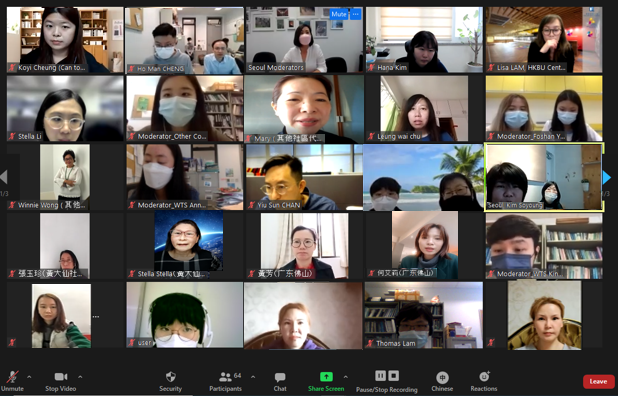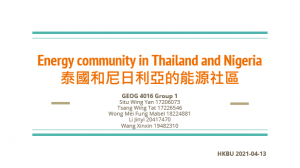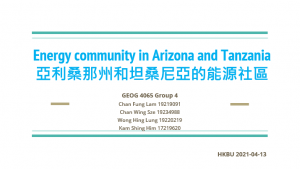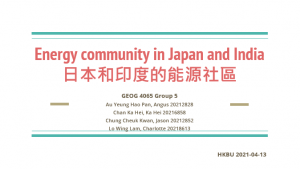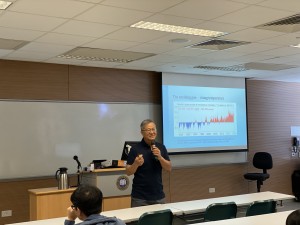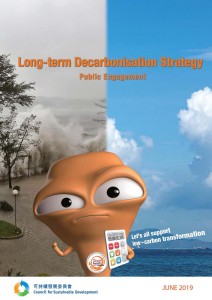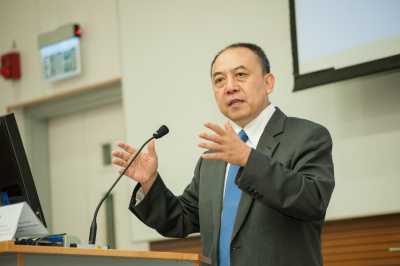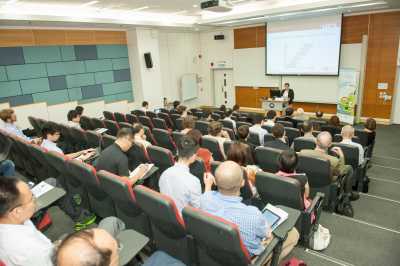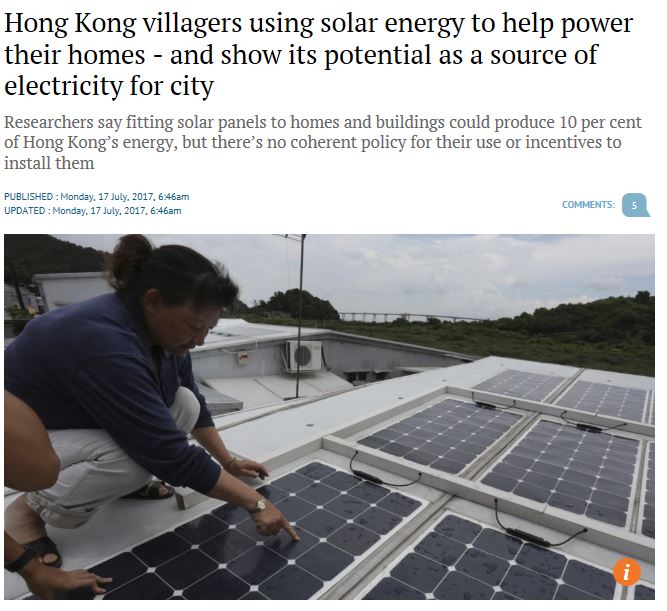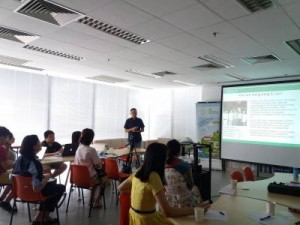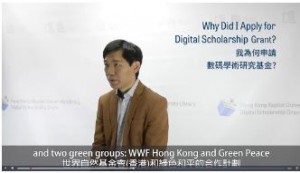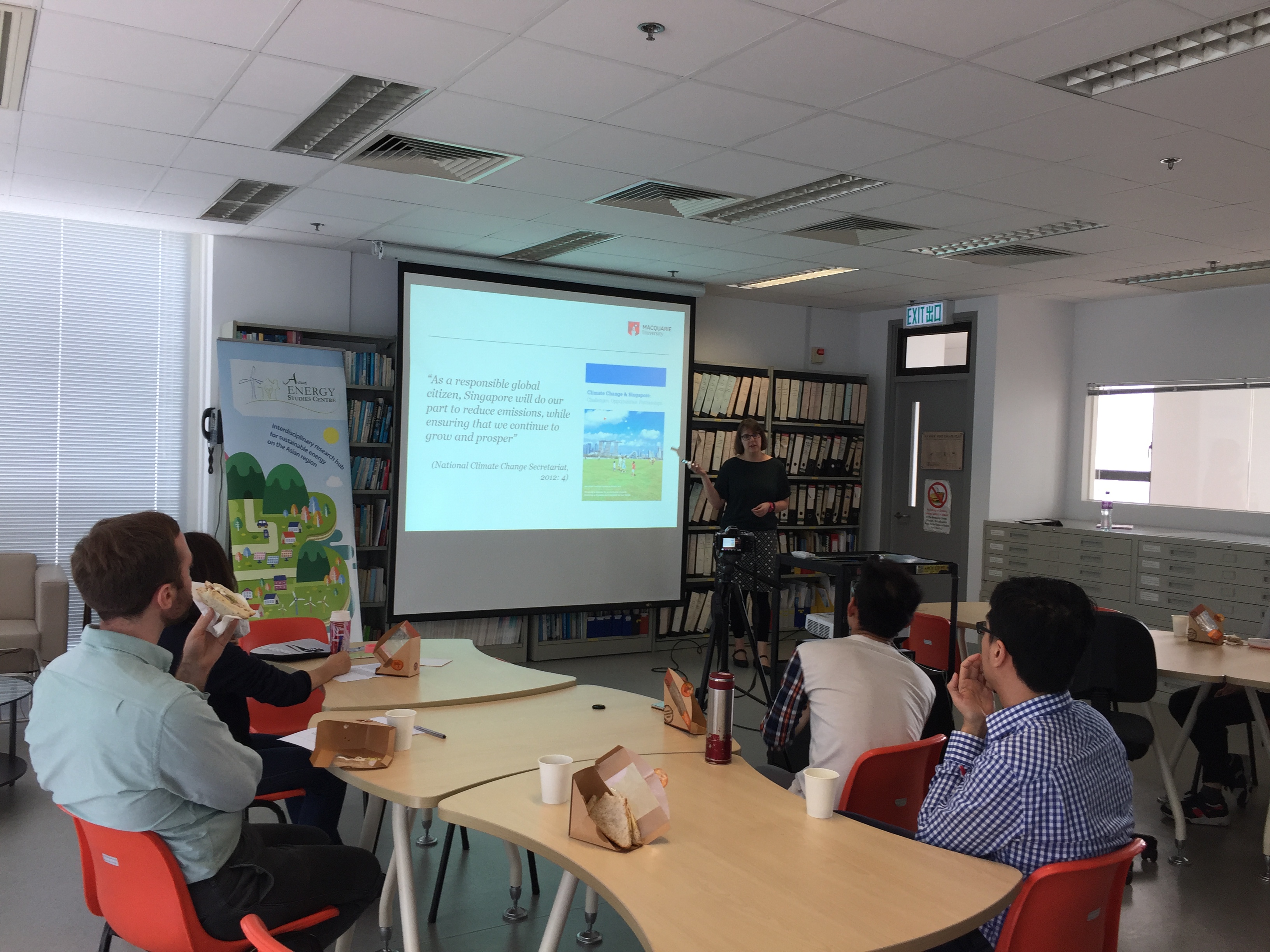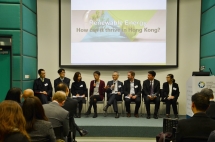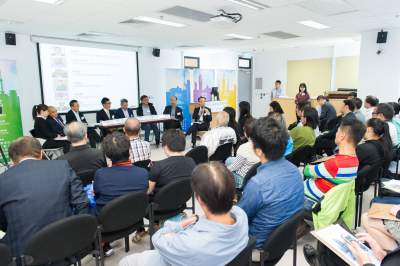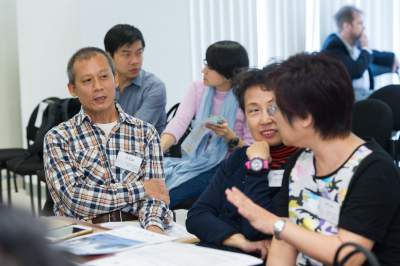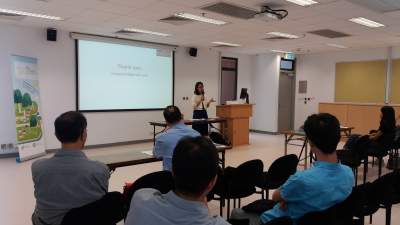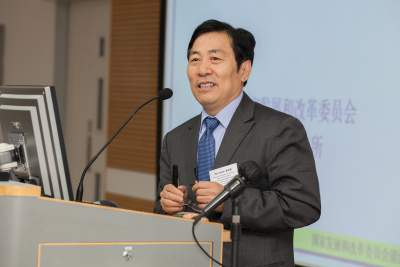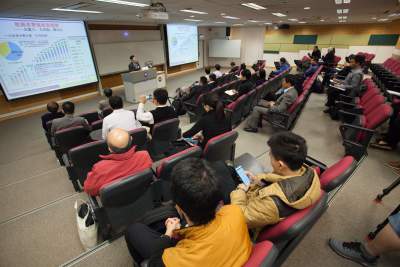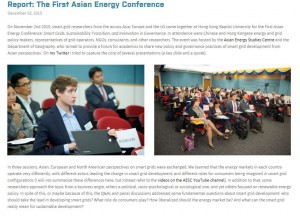Knowledge Exchange
AY 2020-21 Students’ Service-Learning Project
GEOG 4016 Sustainable Energy and Technological Innovation in China
GEOG 4065 Energy Policy and Analysis
Desktop research –
International case examples of women-led community-based sustainable energy development
Online Community Sharing Workshop – Women and low-carbon energy community (9 Mar 2021)
GEOG 4016 Group 2 and GEOG 4065 Group 3 students moderated the small group discussions in the workshop.
Newsletter for Online community sharing workshop (Click here)
Online Capacity Building Workshop – Cross-city smart low-carbon community (13 Apr 2021)
Webpage Design – Sharing of international good practices
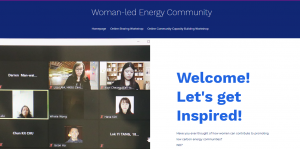
Woman-led Energy Community Website
Students in GEOG 4065 Group 6 designed a website to document some good practices of woman-led energy communities.
(Click here)
Mr. Willam Leung Held an Open Lecture at Hong Kong Baptist University on 31 October 2019
(31 October 2019)
Mr. William Leung held an open lecture on “The prospect and challenges of urban solar in Hong Kong from a solar industry perspective” at Hong Kong Baptist University on 31 October 2019.
Mr. Wing Mo Leung Held an Open Lecture at Hong Kong Baptist University on 17 October 2019
(17 October 2019)
Mr. Wing-Mo Leung (Adjunct Professor at Hong Kong Polytechnic University; former Assistant Director of Hong Kong Observatory) held an open lecture on “Decarbonization in Hong Kong – from the perspectives of impacts, justice and governance” at Hong Kong Baptist University on 17 October 2019.
The Asian Energy Studies Centre has responded to Public Engagement Document “Long-term Decarbonisation Strategy” led by the Council for Sustainable Development (SDC)
(24 September 2019)
The Asian Energy Studies Centre has responded to the Public Engagement Document based on our research in two perspective solar communities.
You can learn more by clicking here (click here to view full response).
Dr. Taedong Lee Held a Guest Lecture at Hong Kong Baptist University on 3rd November 2017
(3 November 2017)
Dr. Taedong Lee from Yonsei University (South Korea) held a guest lecture on Translocal Relations & Climate Change in Asia to students at HKBU.
(21 July 2017)
AESC led the efforts in organising a series of events around research on governance for sustainable energy transitions on the Asia-Pacific Region from 16-18th July 2017. These events provided a critical forum for academics and other stakeholders to learn about, share, and contribute to better understanding of governance issues and practices of sustainable energy transitions from Asian perspectives. The networking, discussions, and developed research plans as a result of these events affirm AESC’s mission to become an increasingly recognised hub for sustainable energy studies on the Asian region.
You can learn more by clicking here (click here to view full article).
(19 July 2017)
Dr. Daphne Mah was recently featured in an article on the South China Morning Post discussing some of the results frome the Deliberative Workshop on Solar PV in Hong Kong back in November 2016. She shared about some of the potential that solar PV may have in generating energy for Hong Kong.
You can find the details in the article by clicking (here).
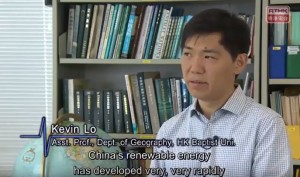
(26 June 2017)
In a recent episode of RTHK’s The Pulse on the segment of renewable energy development in China and in Hong Kong, Dr. Kevin Lo discussed the potential Hong Kong has in developing renewable energy systems. Compared to other parts of China, Dr. Kevin Lo stated, “Hong Kong has one of the best solar radiation in the country, so we cannot really argue that Hong Kong is not suitable for solar development.”
Hong Kong, a signatory of the Paris Climate Change Agreement, has committed towards a goal of cutting its carbon emissions by up to 36% and its carbon intensity by up to 70% by 2030. However, Hong Kong has yet to commit to a renewable energy target.
You can view the full segment by clicking on the Youtube link on the left or here (click here to view).
(9 June, 2017)
Dr. Deng Lifeng, associate professor in the School of Communication at Sun Yat-sen University in Guangzou, China, delivered a presentation on the case of Wangjiang Si Lao in the Pengze Inland Nuclear Power Plant in Jiangxi at Seminar No. 8 on 9th June, 2017. A total of about 15 participants coming from utility companies, businesses, and research students attended the seminar.
In recent years, the Chinese government had been exploring inland nuclear power plants to fuel its growing energy demand, which prompted the “inland nuclear debate”. In studying the anti-inland nuclear movement, Dr. Deng focused on Wangjiang Si Lao, the four retired Communist Party of China cadres who devised strategies to protest against the Pengze project. They successfully made their appeals known to the Central government and other ministries, organised and mobilised local activists, and resorted to legitimate means to protest such as using social media and refraining from holding street demonstrations. Their strategies in the end had indirectly contributed to the eventual halt of approvals for future inland nuclear power plants.
Dr. Deng will be returning to AESC in July: he will be one of the featured speakers at the Conference on “Governing for Sustainable Energy Transitions: Perspectives from the Asian-Pacific Region” on 17 July, 2017. To learn more about the conference, please visit http://aesc.hkbu.edu.hk/conference-governance-set-asian-pacific.
(29 March, 2017)
Dr. Kevin Lo, Research Cluster leader in Energy Governance at Asian Energy Studies Centre, and Assistant Professor in the Department of Geography at Hong Kong Baptist University was recently featured by the HKBU Library to promote the Hong Kong Solar Map as one of the successful initiatives of its Digital Scholarship Grant Project.
The Hong Kong Solar Map allows users to locate their own buildings, and to use a drawing tool to indicate the size of their rooftops which can be used to install solar panels. This endeavor is an effort to use innovative ways to educate and engage the public in HK about solar developments. This map is also the first of its kind in Greater China.
By in the video here to learn more: http://hkbutube.lib.hkbu.edu.hk/ov/display.php?id=10063
(28 March 2017)
Guest speaker Dr. Sara Fuller, Senior Lecturer of Department of Geography and Planning at Macquarie University in Australia delivered a presentation on the contested geographies of urban climate responsibility at Seminar No. 7 of the Energy Research Seminar Series on 28th March, 2017. Participants coming from academia attended the seminars and actively involved in the discussion.
Configuring Responsibility in the City: Justice and Low Carbon Transitions in Hong Kong and Singapore
Dr. Fuller presented a framework on analysing the contested geographies of urban climate responsibility, and attempted at applying this framework based on empirical research in Hong Kong and Singapore as a means to develop a theoretical understanding of how such responsibility is conceptualised, and experienced within and beyond cities. This seminar reflected on some of the opportunities and challenges in configuring urban climate responsibility, and argued for the need to unpack this multiplicity to better understand who is, and how are they held responsible in enabling just low carbon urban transitions in a spatial context.
Click to learn more: http://aesc.hkbu.edu.hk/events/energy-research-seminar-series/past-seminars/seminar-no-7-28-march-2017
AESC co-organises seminar to discuss renewable energy development in Hong Kong (亞洲能源研究中心研討會探討香港再生能源發展)
(12 March, 2017)
The Asian Energy Studies Centre (AESC) of HKBU recently collaborated with Business Environment Council and World Wide Fund for Nature – Hong Kong (WWF) to organise a seminar with the theme of “Renewable Energy – How can it thrive in Hong Kong?”.
The seminar focused on the opportunities and challenges for developing renewable energy in Hong Kong in light of the recently released “Hong Kong Climate Action Plan 2030+” report by the Environment Bureau of the HKSAR Government. Over 120 participants from businesses, NGOs, academia, government departments and bureaus attended the seminar.
The panel discussion and Q&A session were moderated by Professor Raymond So, Chairman of the Energy Advisory Committee of the HKSAR Government and HKBU’s Dean of School of Continuing Education. The seminar provided a platform for idea sharing and raising key issues on renewable energy development in Hong Kong, including geographical prospects and constraints, technical hurdles, public acceptance of and willingness to pay on solar PV electricity, financing models, and the role of government in renewable energy development.
浸大亞洲能源研究中心最近與商界環保協會、世界自然基金會香港分會合作,舉辦主題為「Renewable Energy – How can it thrive in Hong Kong?」的研討會,吸引超過120位來政府、商界、學界及非政府機構的人士參與。
基於政府環境局早前公佈《香港氣候行動藍圖2030+》,研討會集中討論香港發展可再生能源的機遇及挑戰。能源諮詢委員會主席、浸大持續教育學院院長蘇偉文教授主持專家討論及問答環節。
研討會提供一個重要的平台予參與者交流及提出香港再生能源發展的重要事項,包括地理上的優勢及局限、技術障礙、公眾對付費購買太陽能的觀感及接受程度、財政模型,以及政府在推展再生能源所扮演的角色。
https://hkbuenews.hkbu.edu.hk/?t=enews_details/1768
The Deliberative Workshop on Solar Photovoltaic Development in Hong Kong:
Prospects and Policy Challenges on 4-5 November, 2016
(30 November, 2016)
The Asian Energy Studies Centre (AESC), together with the Department of Geography and Centre for Geo-Computational Studies at Hong Kong Baptist University, School of Energy and Environment at City University of Hong Kong, the Center for Deliberative Democracy at Stanford University, and the Department of Geography at the University of Hong Kong organised the two, half-day Deliberative Workshop on Solar Photovoltaic (PV) Development in Hong Kong: Prospects and Policy Challenges on 4-5 November, 2016.
About 60 participants joined the workshop. They consisted of potential solar PV adopters such as village house owners, sampled Hong Kong citizens, and commercial and institutional representatives from utility companies, energy service companies, developers, hotels, airline companies, and consultancies. This unique workshop adopted Deliberative Polling, an innovative deliberative participation method trademarked by Stanford University’s Center for Deliberative Democracy. Deliberative Polling aims to empower engaged and informed participants to take a proactive role in clarifying and debating key issues on matters of public importance Key issues discussed included Hong Kong’s solar potential, technical challenges such as grid connection and stability, tariff impact and costs, and policies and regulations.
To learn more about the workshop, please click (here) or on the image.
This event was also featured on HKBU E-News (click here) and SOSC E-News (click here).
Dr. Sopitsuda Tongsopit Shares About Thailand’s Solar PV Development and Prospects in Hong Kong as a Visiting Research Fellow
Dr. Sopitsuda Tongsopit, a researcher from Chulalongkorn University based in Bangkok, Thailand, was appointed a Visiting Research Fellow at the Asian Energy Studies Centre (AESC) from 9 to 14th September, 2016.
Dr. Tongsopit described the major processes and outcomes of this 2 year deliberative initative at Seminar No. 6 of the Energy Research Seminar Series. Dr. Tongsopit also delivered a stimulating guest lecture to over 40 students in the introductory course, “Energy, Environment, and Sustainability”.
To learn more, please click (here).
(December 17, 2015)
The Asian Energy Studies Centre (AESC) held a full day of events, featuring a public seminar and an internal research meeting between scholars from the Energy Research Institute of the National Development and Reform Commission (ERI) and AESC research fellows. These events strengthened AESC’s role as a hub for sustainable energy research on the Asian region, with emphasis on China’s emerging practices and developments in coming years and decades.
Prof. Dai Yande, ERI deputy director and research professor, spoke on the “13th Five-Year Plan on Energy Development: Challenges and Prospects” at Seminar No. 4 of the Energy Research Seminar Series. More than 30 people from utility companies, consultancy firms, non-governmental organizations, businesses, and academia attended this seminar.
Prof. Dai argued that the monumental challenges China currently faces such as the degradation of land, air, and water, will fundamentally need to be solved through low-carbon energy development. The 13th Five-Year Plan in Energy Development would set targets that will eventually facilitate China’s transition to sustainable development towards 2050, and begin to address the forecasted increases in energy demand, while at the same time drastically reduce energy intensity and spur economy growth.
Scholars from ERI and AESC’s research fellows also showcased their respective research projects and discussed potential opportunities for future collaboration on sustainable energy research. Potential projects would be further developed into proposal applications to be submitted in early to mid-2016. This meeting and potential partnership is a major development in AESC and HKBU’s research networks in sustainable energy research in China and on the Asia region.
(7 December, 2015)
Robin Smale, a PhD Candidate at the Environmental Policy Group at Wageningen University in the Netherlands and one of the speakers at the First Asian Energy Conference: Smart Grids, Sustainability Transition and Innovation in Governance, wrote an article summarising key insights and questions and sharing his reflections from the Conference.
You can learn more about this in the link or by clicking the site below: http://www.energyinpractices.com/news-and-discussion/2015/12/1/hong-kong

